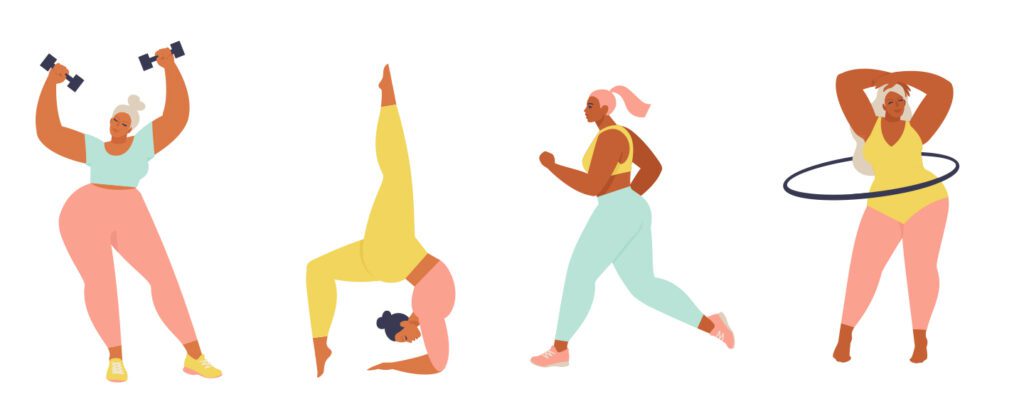Q. I’ve noticed my 8-year-old son asking for extra helpings at the dinner table lately. How can I make sure he’s staying healthy with his eating habits in a way that doesn’t harm his relationship with food?


A. Mealtimes pose different challenges for families; requests for extra food servings are common. I remind parents that the best way to teach healthy eating is by modeling! Strengthen family relationships by enjoying each other’s company with set meal and snack schedules without distractions. Give a single serving of the main course and offer second helpings of vegetables if your child is still hungry. Offer your child water because thirst is often confused for hunger. Our stomach needs 20 minutes to send fullness cues to our brain. Increasing our awareness when eating gives our stomach and brain enough time to communicate! Appetites vary throughout childhood and adolescence due to changing calorie needs. Check with your child’s physician about his or her growth. Learn about portion sizes. Read about intuitive eating and Ellyn Satter’s “Division of Responsibility.” Your family will be on the road to more enjoyable family dinners!



Aileen Litwin, DO
Pediatrician, Hitchcock Family Medicine
Q. My sister has been notified that she’s eligible for a clinical trial for treating her breast cancer. What are some of the pros of a clinical trial compared to traditional treatments?
A. There are many pros to participating in clinical trials compared to traditional treatments for cancer. Clinical trials offer cancer treatments that are not available outside of the nontraditional setting. These treatments may be more effective than standard cancer treatments. While this is not guaranteed, study drugs offer the chance of improved outcomes. Cancer clinical trials allow patients to access health professionals with focused expertise in a particular type of cancer. Another major advantage of clinical trials is the close monitoring of the treatment’s effect and any potential side effects. This monitoring includes an increased frequency of blood tests and cancer scans during the trial period, as well as during long-term follow up. Most importantly, participating in clinical trials has huge societal implications and benefits. Drugs studied and developed in clinical trials represent the future of cancer treatments. Patients who participate in clinical trials pave the way for improved treatments for generations to come. Research through clinical trials can ultimately change treatment guidelines and even funding for healthcare services.



Eric Turner, MD
Oncologist & Medical Director, Peeples Cancer Institute
Q. My elderly mother is beginning to struggle with looking after herself and her condo. How do I decide if at-home help or a senior living setting is best for her?
A. First, ask her what she envisions for her own future. Is she socially active and does she want to be around other people, or is she more comfortable being alone? Sometimes a familiar environment is best if there are eyesight issues or dementia. Another consideration is affordability. The cost of long-term care can be surprising. In-home assistance is usually a minimum of around $100 per visit, and senior living is thousands of dollars per month, depending on the level of care.
As you face this situation with your mother, take time to consider your own retirement care plan. Don’t leave that responsibility with your family. It’s not just financial planning – it’s empowering yourself by making your own informed decisions about who will care for you, if needed, in the future. Finally, share your plan with those you love!



Melissa Brown
Executive Director, Ascension Living Live at Home



Q. My friend says that exercising outdoors will help alleviate my depression, but I’m not so sure. What’s the science behind that?
A. Being outside and exercising have profound effects on the brain and the chemicals that affect our mood. When we exercise, the body releases hormones called endorphins – the body’s natural pain killer. Endorphins trigger a positive feeling in the body and create a feeling of general well-being. Regular exercise, with a goal of at least 150 minutes of moderate-intensity activity per week, allows our brain to remodel its reward system, leading to higher levels of dopamine, the “feel-good” hormone. Being outside allows us to engage our five senses and connect with nature and sunlight, which causes the brain to release a hormone called serotonin. Serotonin is the mood-boosting hormone that helps us feel calm and focused. This combination is a powerhouse for mental and emotional health. Although this will not cure your depression on its own, it can help alleviate some symptoms. Paired with other lifestyle changes, your depression could be alleviated naturally.



Melanie Blake, MD, MBA
Lifestyle & Internal Medicine, Lifestyle Medicine at Galen
Q. I just got hearing aids a few days ago, and I’m having some trouble adjusting to them. How long does it usually take for people to get used to wearing hearing aids?
A. The most common type of hearing loss is age-related hearing loss, or presbycusis. This type of hearing loss is gradual and occurs over time. When an individual suffers from this type of hearing loss, they lose the ability to hear sounds in the speech spectrum and normal environmental sounds. The brain adapts to the loss of these sounds, therefore giving the individual the sensation of not noticing they have hearing loss. When one is fitted with hearing aids, those sounds are reintroduced to their brain, and it takes time to acclimate to those sounds again. It is a good idea when being fitted with hearing aids to wear them daily to make the adjustment period less challenging. It can take several weeks to adjust, but the outcome is being able to enjoy one’s life with better hearing. Follow the advice of your hearing professional to achieve your best outcome.



Cheryl Ward, BC-HIS
Hearing Instrument Specialist, Audiology Services of Chattanooga

